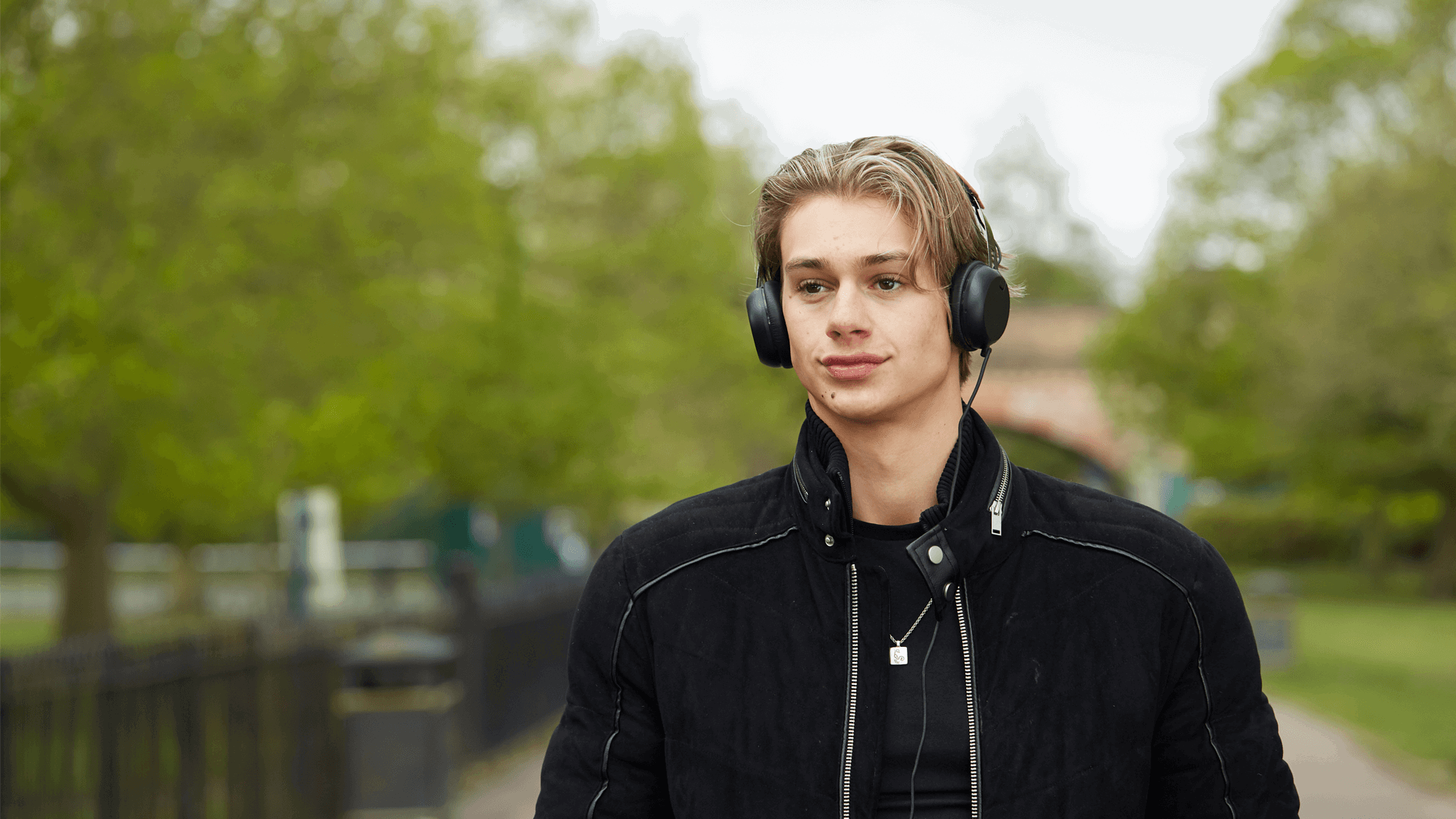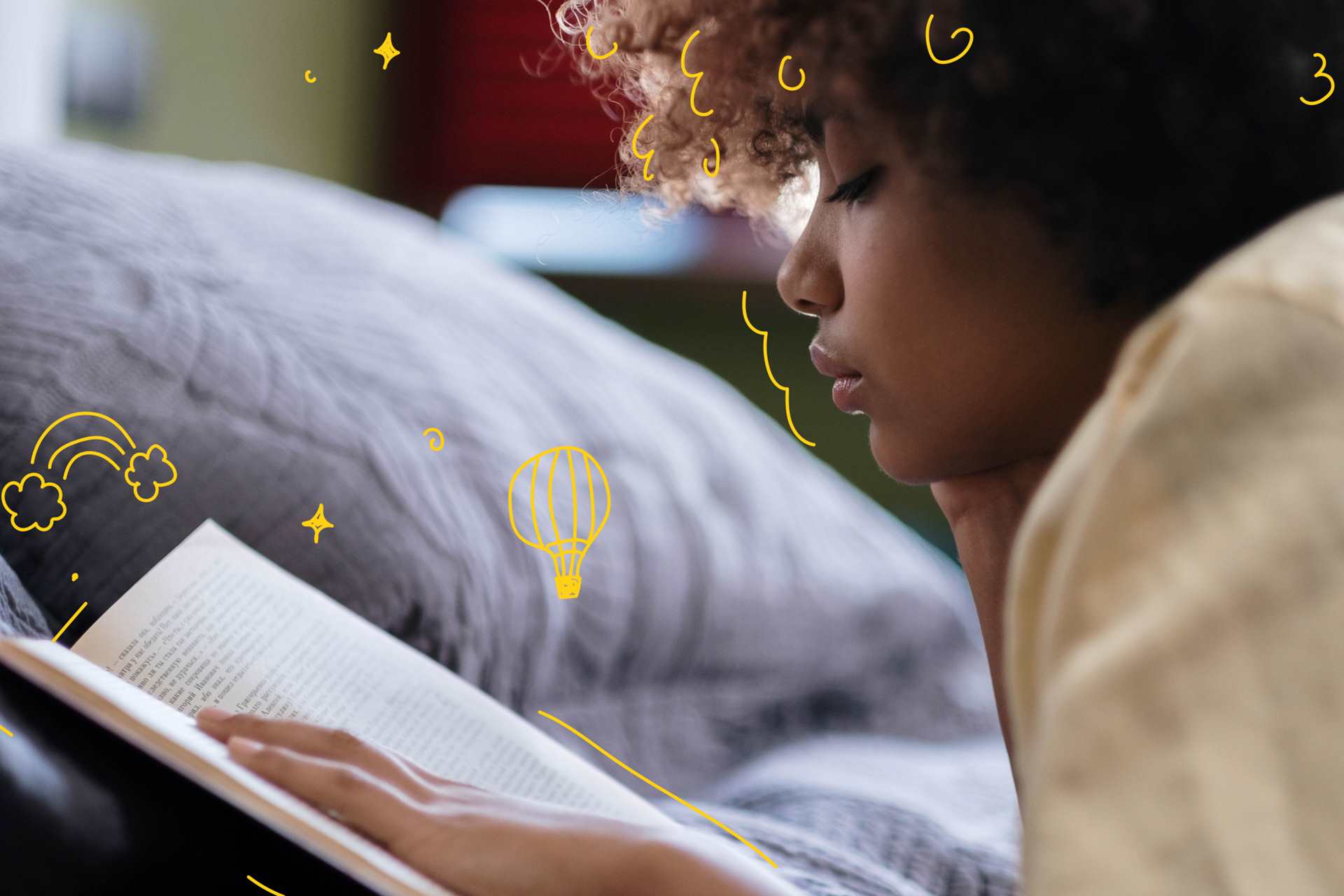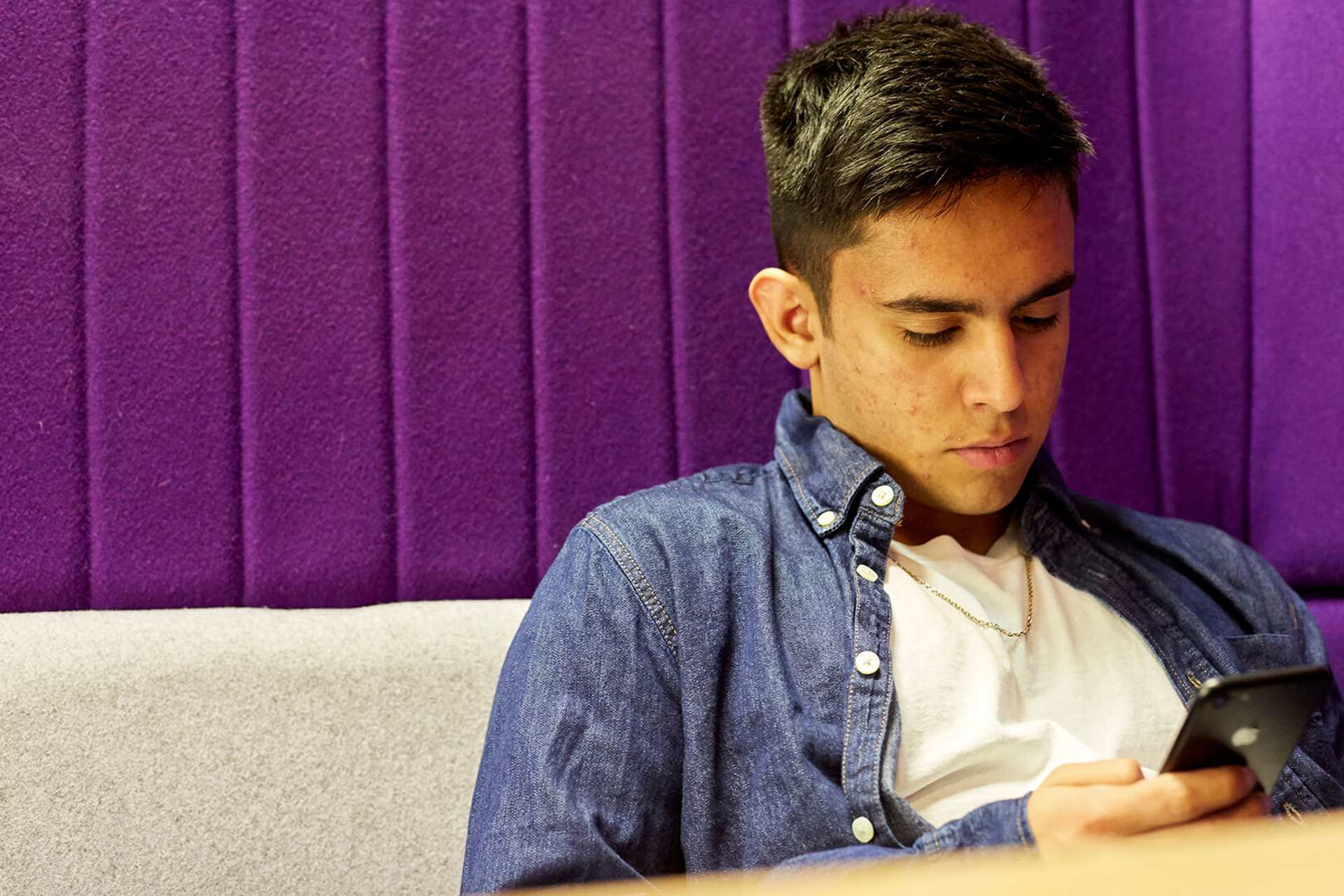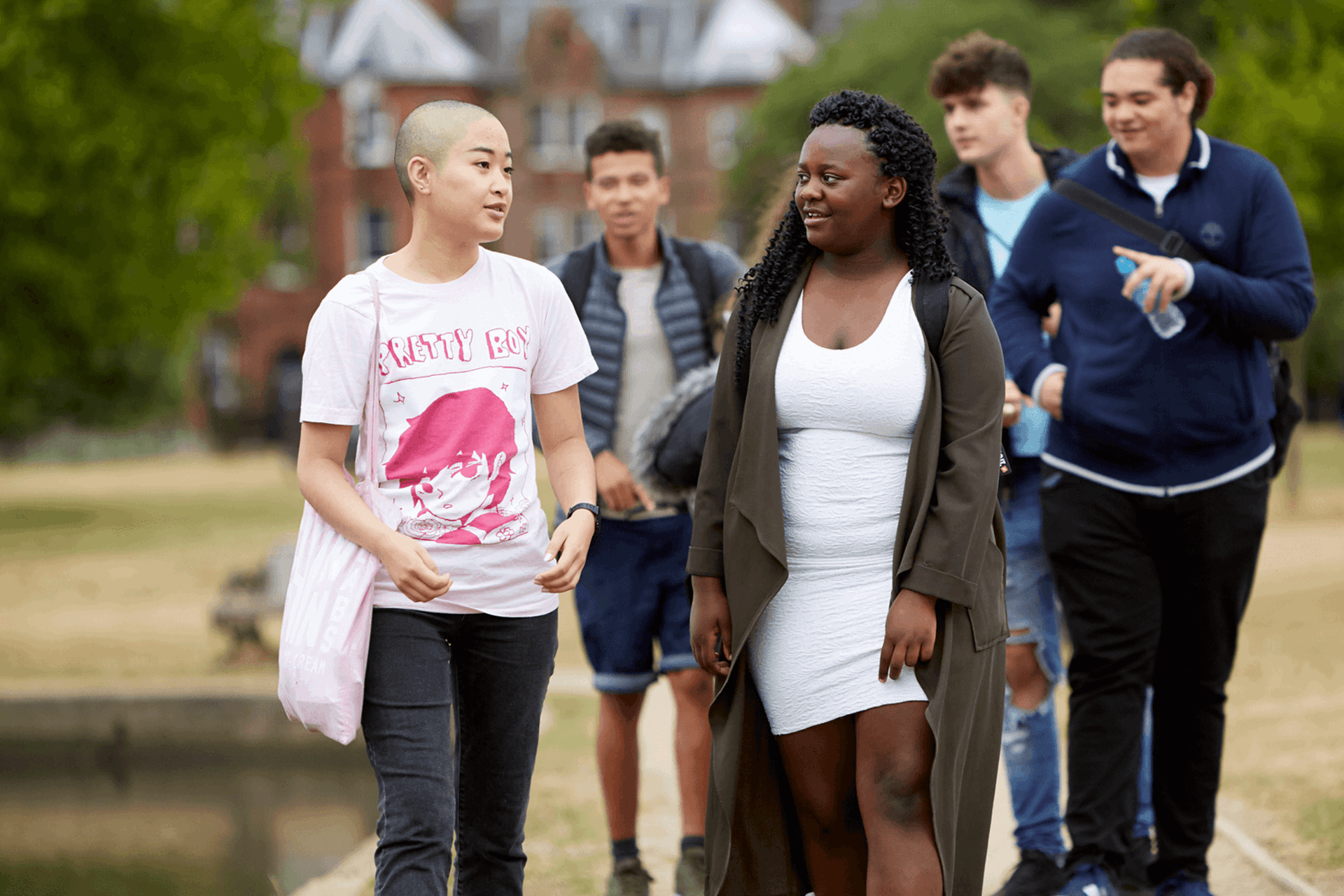Topics mentioned: anxiety, depression, self-care, self-esteem, school
About: Samara shares how she practises self-care through music and creative writing during times when she's struggled with anxiety, stress and depression.
I’ve used writing to create fantasy worlds, to analyse subjects that matter to me, and create a character to explore my own trauma.
Over the past three years, young people have faced more challenges than we could’ve ever imagined - most predominantly the first Covid-19 lockdown in 2020. For lots of young people like myself, creativity and artistic expression have been more important than ever as we’ve been forced to learn how to navigate our way through turbulent times.
From art and music to poetry and creative writing, these methods have helped us process a myriad of complex emotions and feelings which arise on a daily basis. They continue to do so as the mental health of young people continues to suffer at the hands of a broken system.

There are two things that have been the core of my self-care for many years: music and creative writing. Ever since I was six years old, creative writing has not only been a way to express myself artistically, but also bring my voice to life and share the things that matter the most to me.
I’ve used writing to create fantasy worlds, to analyse subjects that matter to me, and create a character to explore my own trauma. My writing has helped me make sense of the anxiety, stress and depression I’ve experienced through my adolescent years allowing me to come to peace with who I am as a person.
I’m so proud of coming out the other side and being here today, as I write this blog.
As soon as I have my headphones on I just feel as though all my worries and anxieties are muted.
Studies have shown that practising creative writing can prevent cognitive impairment and improve both memory recall and retention, as well as improving sleep and mood for those who practise it regularly. So if you’ve had a bad day, maybe picking up a pen and try writing it out into a poem, song or list - it might actually work wonders.
Another important part of my self-care has been music. With credit to my mum, I’ve been raised on 80s and 90s music and it has been an integral aspect of my life since a young age. I’ve grown up listening to a diverse range of bands and this has formed my own music taste as. Some of my favourite bands include The Killers, Coldplay, Linkin Park and Placebo.
Studies have shown that listening to music reduces both anxiety and depression, as well as enhance focus, including even boosting your self-esteem. Personally, I can’t remember a day I’ve gone without listening to music, especially during my writing sessions. As soon as I have my headphones on I just feel as though all my worries and anxieties are muted. I’m transcended to another world.
Music has always been that beacon of hope on a bad day, something I’ll always be grateful for.
During stressful times in my life such as studying for my A-Levels, despite my head of sixth form advising me not to listen to music with words in, I simply couldn’t study without putting my extensive 29-hour Spotify playlist on shuffle. Music has always been that beacon of hope on a bad day, something I’ll always be grateful for.
Overall, I think music is truly a beautiful form of art that brings so many people together. I’ve been fortunate enough to witness this in the live concerts I’ve been to, and honestly, I don’t know where I’d be without music.
Self-care is a subjective but integral aspect of looking after our mental health. So, whether that’s drawing out your frustrations, singing out your stresses or even just writing out a journal entry with your favourite band on full volume, be sure to make time for your needs each and every day. There’s only one you in this world after all, so look after yourself in the way you need too.
There’s only one you in this world after all, so look after yourself in the way you need too.
More information and advice
We have tips and advice to help you find the support you need. Take a look at our guides.
Where to get help
However you're feeling, there are people who can help you if you are struggling. Here are some services that can support you.
-
Childline
If you’re under 19 you can confidentially call, chat online or email about any problem big or small.
Sign up for a free Childline locker (real name or email address not needed) to use their free 1-2-1 counsellor chat and email support service.
Can provide a BSL interpreter if you are deaf or hearing-impaired.
Hosts online message boards where you can share your experiences, have fun and get support from other young people in similar situations.
- Opening times:
- 24/7
-
CALM (Campaign Against Living Miserably)
Provides support to anyone aged 16+ who is feeling down and needs to talk or find information.
Free webchat service available.
Read information about the helpline and how it works.
- Opening times:
- 5pm - midnight, 365 days a year






